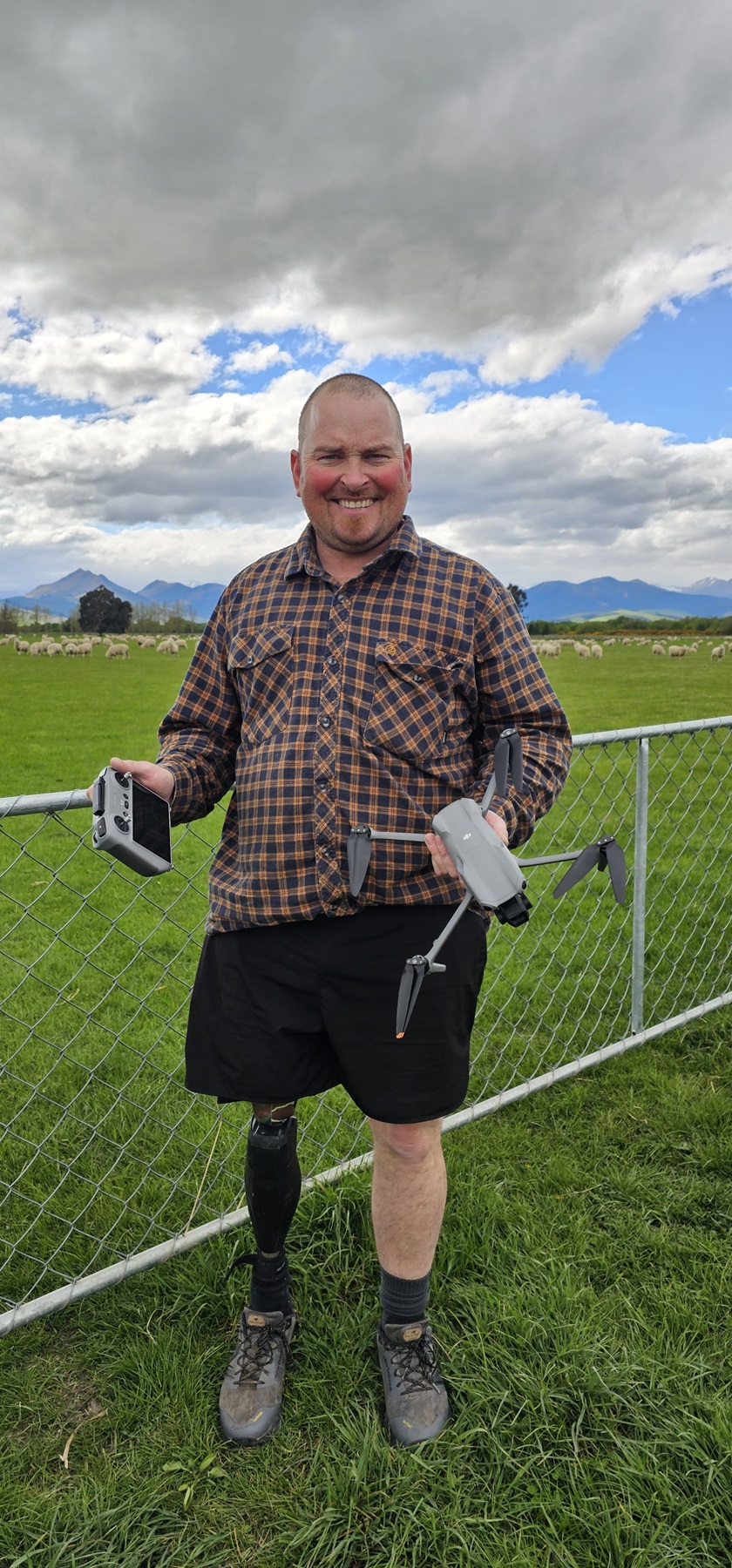
During his recovery, Mr Hewitt honed a new skill set operating drone technology. This lambing season, he worked at North Range Station in Castlerock, doing twice-daily lambing beats — flying over the lambing blocks and pinpointing exactly where shepherds needed to head to tend to a ewe in need.
The accident is still vivid in Mr Hewitt’s mind. At the time, he was dairy farming in an equity partnership.
"It was December 30. We had family staying, and I was sorting a water issue. I was up on top of a water tank and for some reason I jumped down at a different place. I can’t explain why I did that. I guess I was just in a bit of a hurry and wasn’t thinking."
A waratah punctured his femoral artery.
"I managed to get myself off the waratah and realised the blood loss was major. I knew I only had a minute or two before I was going to lose consciousness."
A trained volunteer firefighter with first aid skills, he knew what to do: stop the bleeding and call for help.
"I called my wife, said I was at the green tank and I was dying, then I hung up."
He then called his fire brigade mates, who were led to him by his wife. Emergency services arrived shortly after that. By the time he reached hospital, he had five makeshift tourniquets around his upper leg and was placed in an induced coma for nearly a week.
Since the accident, Mr Hewitt has maintained a no-nonsense, "work smarter, not harder" mentality.
"I could see I was going to have continuous hospital visits with my leg, so I made the call pretty early on to just take the bloody thing off. I didn’t want to be stuck with that kind of baggage — I just wanted to get on with living."
While still on ACC, he bought a quality drone and taught himself to operate it, learning how its presence affected sheep behaviour.
"The key was to get a good-quality one that can operate in strong winds."
North Range Station farm manager Andrew Law welcomed him on to the large-scale property near Lumsden.
"Last year it was just a hobby," Mr Hewitt said.
"I did a fair bit of flying around the ewes pre-lamb so they’d be used to it when they had lambs at foot. But we didn’t bother this year — there’s actually a benefit in the drone having a bit of spook factor. If you see a fresh-cast ewe, the drone flying low at her can sometimes be all she needs to get a fright and back up on her feet."
A full circuit of the lambing blocks using the drone took him about 45 minutes.
Mr Law said the drone had been a "game changer".
"A lambing beat could take a shepherd six or more hours each day, and even then ewes can be missed. Having a drone saved us a heap of time and meant we weren’t going into paddocks we didn’t need to be and mis-mothering lambs."
Mr Hewitt is adding new uses for his drone, including mustering and adding sounds to encourage stock movement.
Now easing back into paid work, Mr Hewitt sees potential to turn his new skill into a business enterprise.
"There could also be potential to train farm staff how to operate their own drones, " he said.














